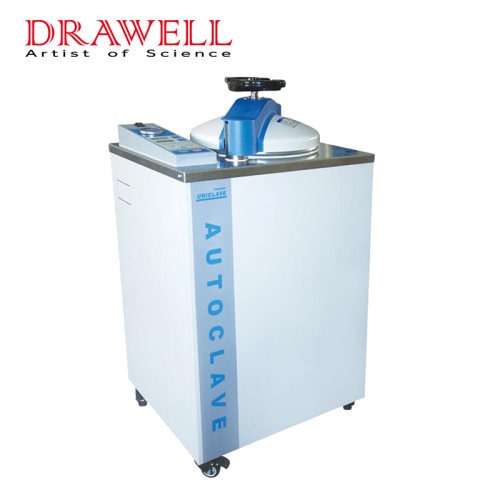
Autoclaves stand as indispensable tools across medical, scientific, and industrial sectors, playing a pivotal role in upholding hygiene standards and ensuring procedural safety. These versatile and reliable devices have revolutionized sterilization processes, facilitating the eradication of harmful bacteria and mitigating the risk of contamination. In this comprehensive overview, we delve into the myriad applications of autoclaves, underlining their significance in diverse industries.
Understanding Autoclaves:
An autoclave serves as a device designed for sterilizing equipment, tools, and materials through the application of high-pressure steam. Employing a combination of heat, pressure, and moisture, autoclaves effectively eradicate bacteria, viruses, fungi, and spores present on sterilized items, maintaining stringent hygiene standards. To achieve optimal sterilization results, autoclaves are engineered to reach and sustain precise temperature and pressure conditions.
Medical and Laboratory Applications:
Sterilization of Surgical Instruments: Autoclaves are extensively utilized in medical settings to sterilize a wide array of surgical instruments, including scalpels, forceps, scissors, and clamps. Through the application of high-pressure steam, autoclaves ensure the elimination of microorganisms, thus reducing the risk of postoperative infections.
Infection Prevention in Healthcare Facilities: Autoclaves play a pivotal role in maintaining sterile environments within hospitals and clinics by sterilizing various items such as gowns, gloves, masks, and curtains, thereby preventing the spread of illnesses among healthcare professionals and patients.
Sterilization of Dental Instruments: Dental offices rely on autoclaves to sanitize dental instruments, including drills, probes, and mirrors, ensuring a germ-free environment and minimizing the risk of cross-contamination.
Sterile Laboratory Equipment: In research and diagnostic laboratories, autoclaves are indispensable for sterilizing glassware such as test tubes, beakers, and flasks, as well as laboratory equipment like microscopes and centrifuges, ensuring accurate experimental results.
Culture Media Preparation: Autoclaves are essential for preparing sterile culture media in laboratories, crucial for cultivating microorganisms under controlled conditions, thereby facilitating research and analysis.
Industrial Applications:
Biohazardous Waste Management: Autoclaves are employed in laboratories and medical facilities to sterilize biohazardous waste materials, including used cultures, Petri plates, and disposable gloves, before disposal, thereby reducing the risk of disease transmission and ensuring proper waste management practices.
Food and Beverage Industry: In the food and beverage industry, autoclaves are utilized for sterilizing packaging materials such as cans, bottles, and pouches, extending the shelf life of products and safeguarding against contamination.
Pharmaceuticals and Biotechnology: Autoclaves play a crucial role in sterilizing equipment, containers, and packaging materials in pharmaceutical and biotechnology industries, ensuring the purity and sterility of pharmaceutical products and biological substances.
Waste Management: Waste management facilities utilize autoclaves for the sterilization of medical waste, including sharps and contaminated items, to mitigate the spread of infectious diseases and adhere to safety standards.
Research and Development: Autoclaves find applications in research and development centers for sterilizing laboratory equipment and materials, maintaining sterile conditions for experiments and production processes.
Cosmetics and Personal Care Products: Autoclaves are employed in the manufacturing of cosmetics and personal care products to sterilize containers and packaging materials, ensuring product safety and quality.
Aerospace and Composites Industry: Autoclaves are essential in the aerospace and composites industries for manufacturing high-performance materials and components through processes like autoclave molding, ensuring optimal strength and quality.
Textile Industry: Autoclaves are utilized in the textile industry for fabric dyeing and finishing, allowing for the treatment of fabrics under high-pressure and temperature conditions, ensuring excellent penetration of chemicals and finishes.
Safety and Best Practices:
Proper loading of items to be sterilized to ensure uniform steam penetration.
Regular monitoring of temperature and pressure gauges to maintain optimal operating conditions.
Adherence to instructions of autoclave manufacturer for operation and maintenance, including calibration and servicing.
In summary, autoclaves represent indispensable tools across various industries, facilitating effective sterilization processes and upholding hygiene standards. Their versatile applications underscore their importance in ensuring safety, quality, and efficiency across medical, scientific, and industrial sectors.









Comments (0)